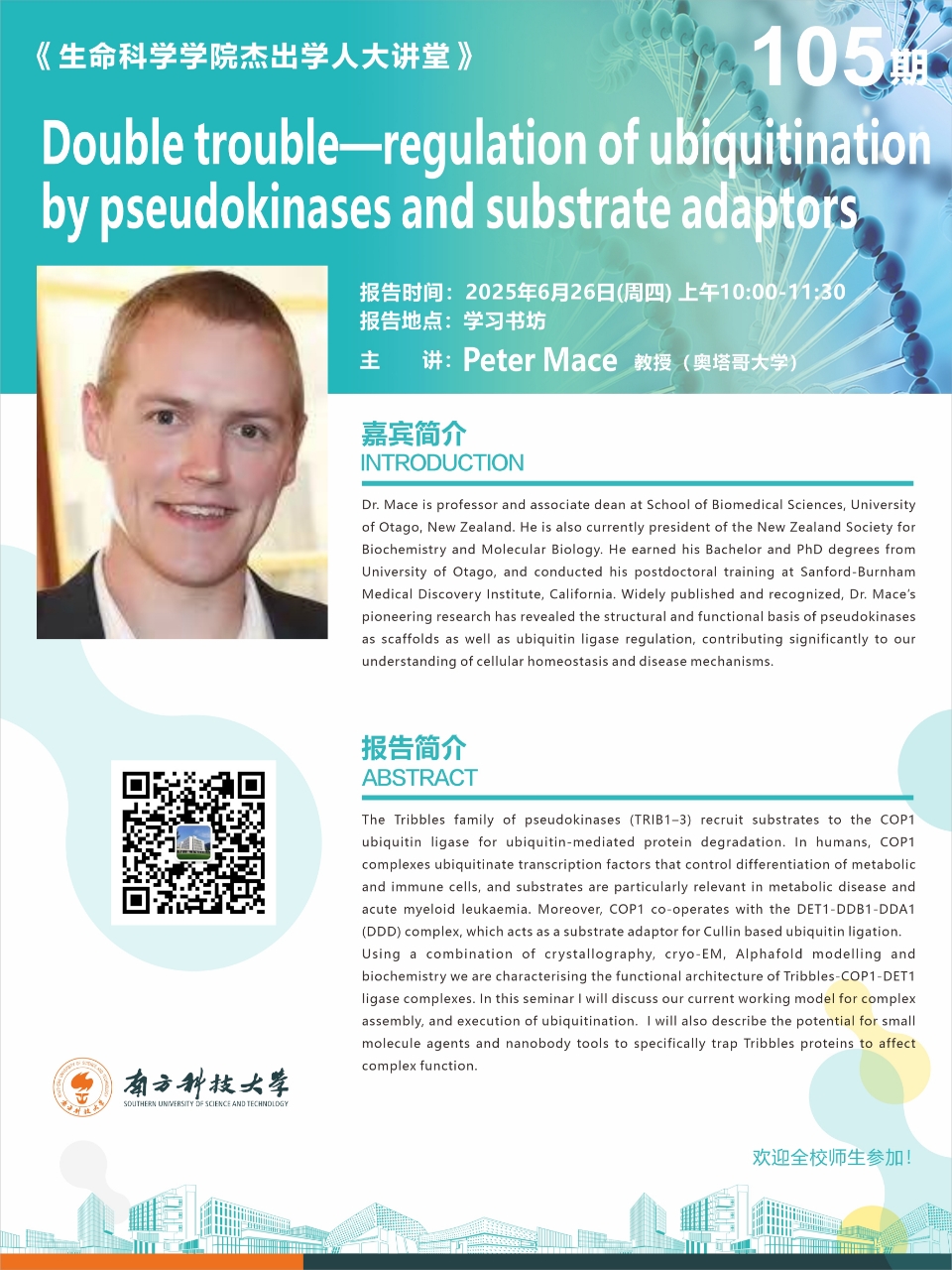
Speaker: Peter Mace
Time: 10:00-11:30 AM, 26 June,2025
Venue: The Learning Studio
Topic: Double trouble—regulation of ubiquitination by pseudokinases and substrate adaptors
Speaker: Peter Mace
Time: 10:00-11:30 AM, 26 June,2025
Venue: The Learning Studio
Abstract:
The Tribbles family of pseudokinases (TRIB1–3) recruit substrates to the COP1 ubiquitin ligase for ubiquitin-mediated protein degradation. In humans, COP1 complexes ubiquitinate transcription factors that control differentiation of metabolic and immune cells, and substrates are particularly relevant in metabolic disease and acute myeloid leukaemia. Moreover, COP1 co-operates with the DET1-DDB1-DDA1 (DDD) complex, which acts as a substrate adaptor for Cullin based ubiquitin ligation.
Using a combination of crystallography, cryo-EM, Alphafold modelling and biochemistry we are characterising the functional architecture of Tribbles-COP1-DET1 ligase complexes. In this seminar I will discuss our current working model for complex assembly, and execution of ubiquitination. I will also describe the potential for small molecule agents and nanobody tools to specifically trap Tribbles proteins to affect complex function.
Brief introduction of the speaker:
Dr. Mace is professor and associate dean at School of Biomedical Sciences, University of Otago, New Zealand. He is also currently president of the New Zealand Society for Biochemistry and Molecular Biology. He earned his Bachelor and PhD degrees from University of Otago, and conducted his postdoctoral training at Sanford-Burnham Medical Discovery Institute, California. Widely published and recognized, Dr. Mace’s pioneering research has revealed the structural and functional basis of pseudokinases as scaffolds as well as ubiquitin ligase regulation, contributing significantly to our understanding of cellular homeostasis and disease mechanisms.